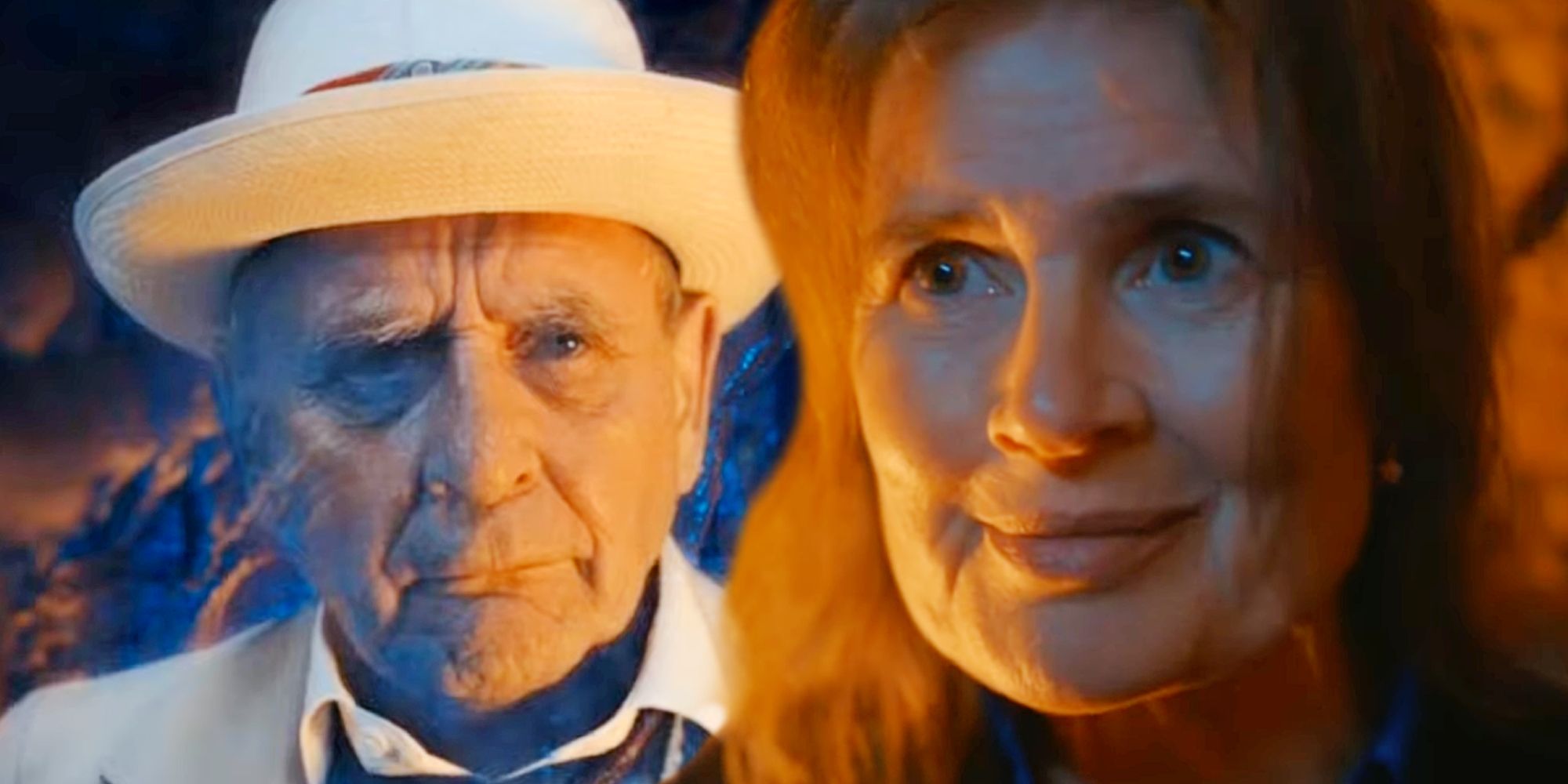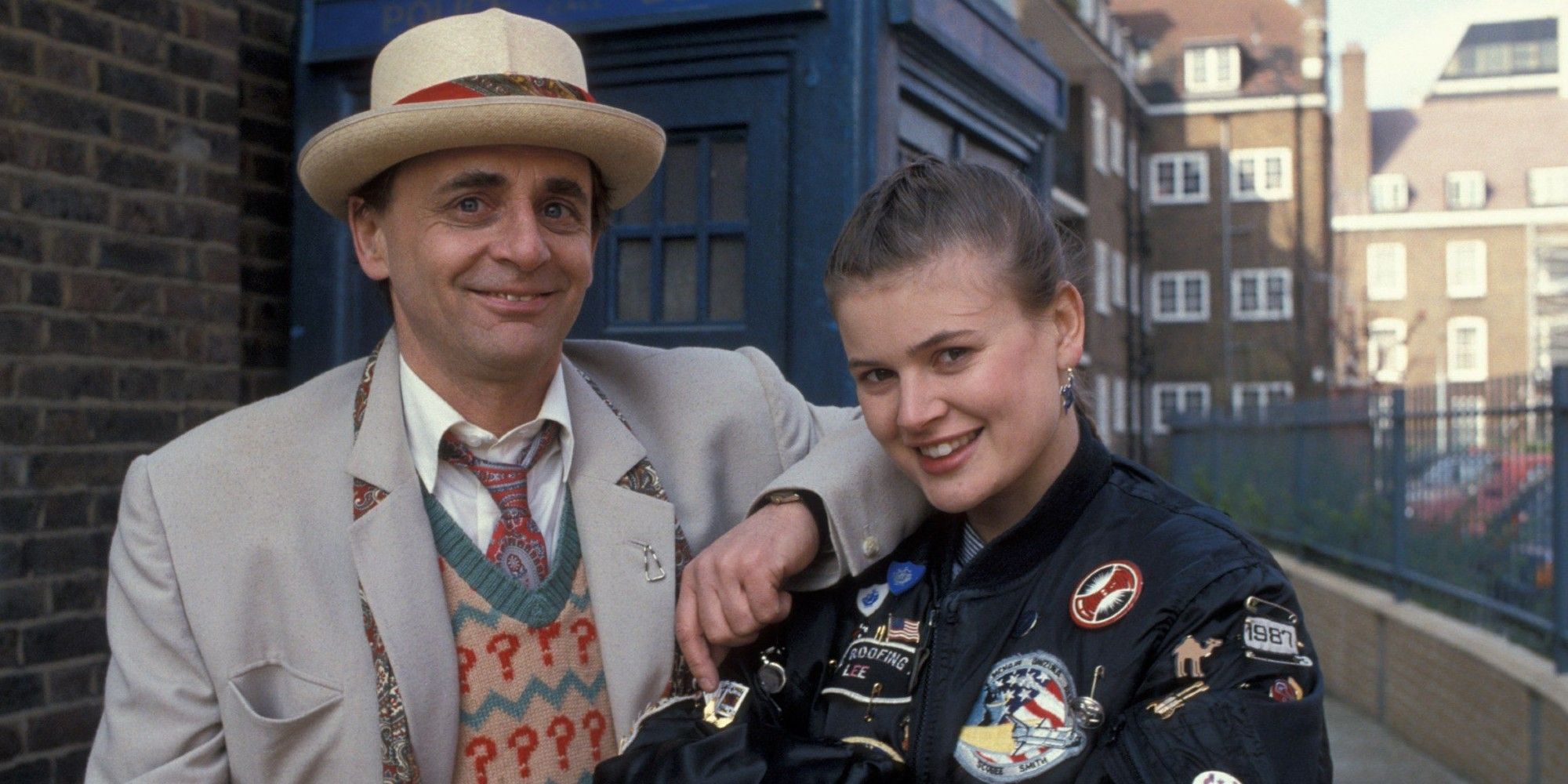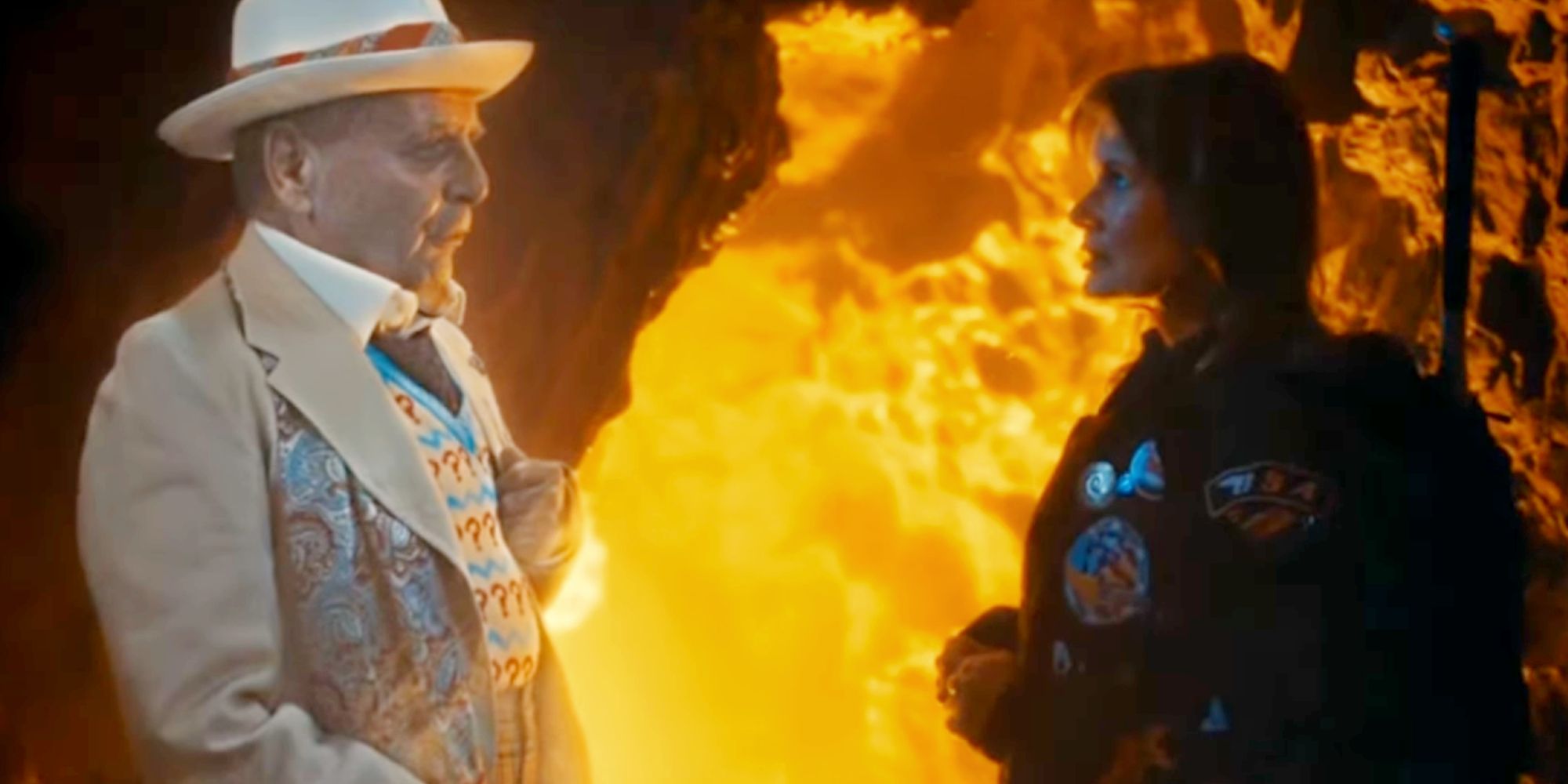The BBC centenary special of Doctor Who, "The Power of the Doctor," tries to create closure for the Seventh Doctor and his companion Ace, but ultimately misunderstands their relationship. Ace joins the Doctor in Doctor Who season 24, episode 4, "Dragonfire," and continues to travel with him for the rest of the show's original run. The two never have an on-screen goodbye and Ace doesn't appear in the 1996 Doctor Who movie, in which the Seventh Doctor regenerates, nor in the 2005 Doctor Who revival.
Ace returns to the screen in "The Power of the Doctor," which alludes to a difficult parting between her and the Seventh Doctor. Though Doctor Who novel "At Childhood's End" contradicts "The Power of the Doctor" in some ways, it does describe a possible separation between Ace and the Doctor. According to the novel, the Seventh Doctor brought Ace to the home of the Astingir, where she touched the Quantum Anvil, which gave her a look into several of her possible futures. After accidentally killing a group of Astingir and learning the Doctor had purposefully brought her there to touch the Anvil, Ace left the Doctor traumatized by the entire experience. This story demonstrates how manipulative the Doctor was with Ace under the guise of teaching her. "The Power of the Doctor" overlooks this, with Ace apologizing to the AI version of the Seventh Doctor and telling him she "didn't understand the burden you carried." He replies, "All children leave home sooner or later." But the Seventh Doctor wasn't a father figure to Ace — he was a Machiavellian mastermind.
The Power Of The Doctor Brushes Over The Seventh Doctor's True Nature
The most egregious example of the Seventh Doctor's ruthless manipulation of Ace comes in Doctor Who season 26, episode 3, "The Curse of Fenric." In it, the ancient evil Fenric uses his "wolves"—descendants of Vikings he can possess and control — to try to poison the human race and get revenge on the Doctor for imprisoning him. He reveals at the climax that Ace is one of his "wolves" and, in fact, he had orchestrated Ace's first meeting with the Doctor. Fenric orders a being called the Ancient One to kill Ace, but she uses a psychic field generated by her trust in the Doctor to stop him. Fenric decides to kill Ace himself but says he'll spare her if the Doctor kneels. The Doctor responds by saying, "Kill her." At this point, the Doctor reveals he knew the truth about Ace the entire time, saying, "I knew she carried the evil inside her. You think I'd have chosen a social misfit if I hadn't known? ... She's an emotional cripple. I wouldn't waste my time on her unless I had to use her somehow." The insulting speech is a trick on the Doctor's part to break Ace's faith in him, releasing the Ancient One, who then turns against Fenric, killing him
Could Ace And The Doctor Ever Truly Reconcile?
Although the trick ultimately saves Ace, the Doctor, and the rest of the world, it's unnecessarily cruel. It taints the entire story of the Doctor and Ace since he was keeping secrets from her the entire time and maybe only traveled with her because he knew about Fenric's involvement. The reconciliation in "The Power of the Doctor" takes the Seventh Doctor's side, implying his horrible treatment of Ace was okay because he was trying to make her a better person and that her anger with him was a form of rebellion. But it's the Doctor who should be apologizing to Ace, not the other way around.
Besides, the actual Doctor doesn't even have this conversation—it's the AI, designed by the Doctor to respond to people's emotions. A satisfying resolution to the relationship between the Doctor and Ace would have to happen face-to-face. The Doctor needs to confront the actions of his previous Doctor Who incarnations instead of running from them. A real heart-to-heart with Ace on-screen in Doctor Who would be more healing for the characters and the audience than the scene in "The Power of the Doctor."



